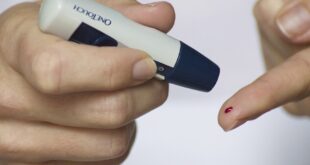Cancer Survival Rates: What They Mean for You
Every year, millions of people are diagnosed with cancer, and many fear that a diagnosis of cancer will ultimately be a death sentence. However, it’s essential to know that the survival rates have increased significantly in recent times due to advances in technology, enhancements in cancer care, and heightened awareness. In this article, we’ll explore what cancer survival rates mean for you and your loved ones.
What are cancer survival rates?
Cancer survival rates reflect the percentage of people with a specific cancer type who’re alive after a certain period. The survival rate typically refers to people with the same tumor location, stage, and demography as the person you’re comparing yourself to.
How cancer survival rates are measured?
Cancer survival rates are calculated in multiple ways based on the time period, and there are certain standards that are usually followed. For example, we might discuss a five-year survival rate, which refers to the proportion of people who live for five years before dying of cancer. Another method of survival rates might be calculated by determining the year’s life expectancy percentages after a cancer diagnosis.
The impact of cancer survival rates
It is crucial to note that cancer-survival-rates should not be evaluated as though they have their predictive abilities. Personal variables that may influence your therapy and outlook for cancer are diverse and shouldn’t be overlooked. However, what should be the emphasis of the concept of cancer survival rates is the enormous value that these advances mean for anyone with cancer care needs. Positive survival rates largely bring in the bright light of revolutionized treatment procedures, early screening projections, and other advancements medically.
Cancer Survival Rates
There are specific survivors’ communities, services like benefits about cancer diagnosis and cancer survivors that patients can communicate with for receiving pertinent assistance to their demands chiefly, who better knows what you are experiencing with cancer than someone who has been in your shoes once. Such connections can lead to a ton:
Accurate and necessary Screening:
Cancer can frequently be efficiently relieved when it’s noticed early during a screening. Enhanced medical care coverage and heightened cancer consciousness within the medical professional may help diagnose existing or early-cancer harm, contributing to the population’s recovery rates.
Technological Advancement:
Technological advancements and enhanced medical research rigor while driving medical approaches to cancer vaccine initiation can notably promise the population varies.
Drug Advancement:
Promisingly, with as many accredited venoms, checkpoints, and new discoveries that have recently surged; concentration pursuing utilizing them for breakthroughs against even complex cancer.
Conclusion
Certainly, cancer survivors can suggest that there is hope for those coping with a diagnosis. Cancer survival rates should indeed be dealt with to raise community expectations, the possibilities of technology, but not greater readiness to be screened for cancer but not seen negatively. Remember not to lose faith in battling cancer journeys, and recognize progress in growth diagnoses as well as tending with the people helping you through your course to becoming a cancer survivor.
 Mind Uncharted Explore. Discover. Learn.
Mind Uncharted Explore. Discover. Learn.


